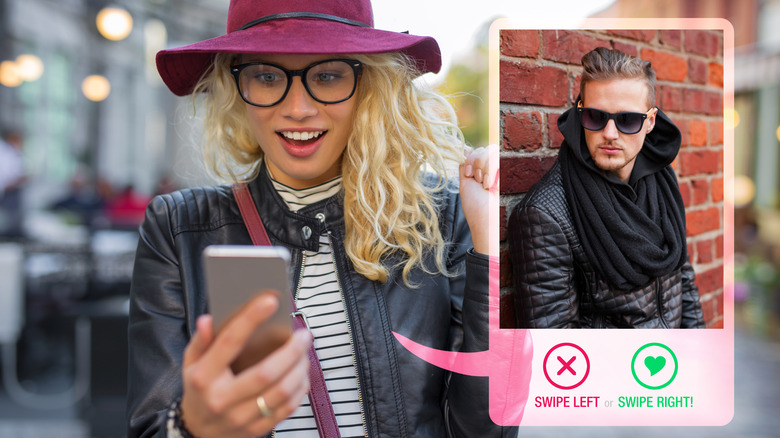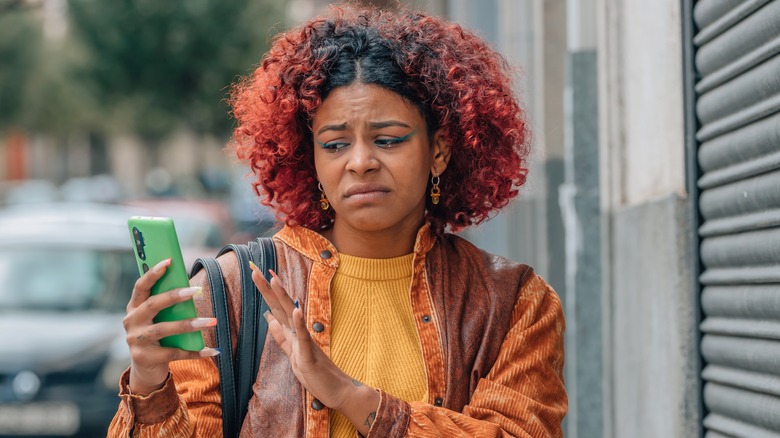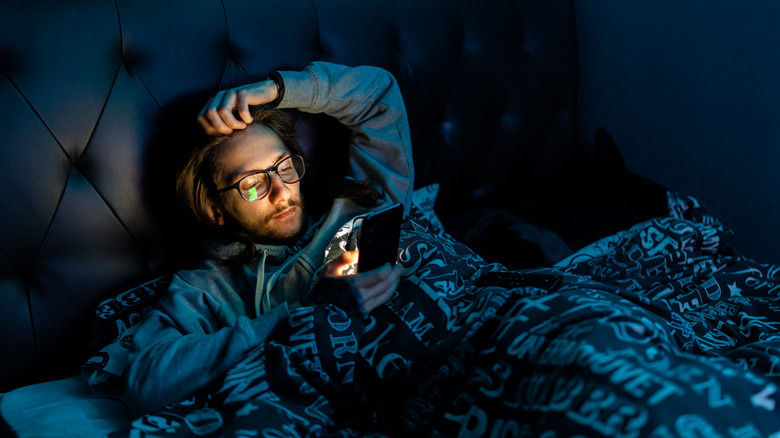Why You Might Want To Avoid Tinder's 'Super Like' Feature
Swiping on Tinder can render an extremely satisfying feeling, but actually finding a match can be even more exhilarating. Matching happens when both people "swipe right" on one another — Tinder notifies the users, and they can begin messaging one another. Matching with someone typically means you're off to a great start in your dating journey. However, there are instances where you might really be enthralled with someone who has not yet matched with you. For these situations, Tinder implemented the "Super Like" feature in September 2015.
Tapping the blue star icon on a profile means that you Super Like someone. As they are swiping and stumble across your profile, a blue message on your page makes you stand out, confirming to your potential date that you want to get to know them better. Possibly a sign of good intentions, this isn't always received well. So should you avoid this feature at all costs? Some have suggested sticking to the Tinder basics.
Super Liking may scare off your matches
What you may view as a digital grand gesture may be enormously uncomfortable to your potential matches. For public relations executive Helen Parkinson, the entire notion of the Super Like can be rather creepy. "It's a bit weird. I get a bit suspicious as to how you can decide to Super Like someone based on just a few images and a line of text," Parkinson told Mashable, and she is not alone.
A viral Reddit thread examined women's thoughts about the Super Like, and several expressed a similar sentiment. However, there are some ways to beat the "creep" allegations. For one, if you're going to Super Like, make sure your profile is clear and concise. Dating app blogger Milagros Rojas says the act can be off-putting when the one who initiated the Super Like has blurry photos or limited information on their profile. Ensure your profile stands out and is inviting, encouraging your possible match to learn more about you.
Super Liking doesn't mean you've found your match
Tinder swears by the Super Like and has the data to back it up. During its "pre-launch" in Australia, the dating app found that users were three times more likely to match a person they "Super Liked." Conversations that stemmed from the Super Like also tended to carry on 70% longer. While these are all great signs that the feature can lead to meaningful connections, there is no guarantee.
"Super Liking" does not automatically mean you'll match with that special person. After you've viewed their profile, confirmed what they're looking for, and gushed over their photos just enough to tap that blue star, there is still the chance that they can swipe left, signifying that they're just not that into you. This can lead to a feeling of dating app rejection, which can contribute to depression, according to Marriage and Family Therapist Steven Losardo – it's also one of the main reasons users dislike Tinder. Since only 12% of Americans found long-term partners via dating apps, according to the Pew Research Center, the love doctor encourages singles to realize everyone faces turndown when searching for companionship online and that's okay.
Given that only one Super Like is permitted daily in the free tier and up to five are allowed with the Tinder Plus subscription, use this feature wisely. Ultimately, the person on the receiving end of this decides whether it bothers them. Don't beat yourself up if it doesn't work out. Remember, there are more fish in the sea, and your fish may not be on Tinder.


